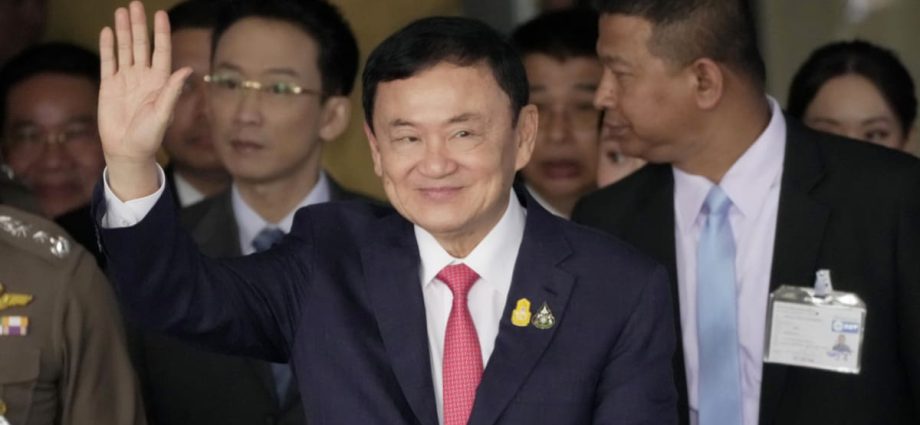
Parties linked to Thaksin have dominated elections since 2001 – until this year, when the progressive Move Forward Party (MFP) won the most seats.
Hundreds of Red Shirts waited through the night at the airport to welcome him with songs and banners – most decked out in their usual crimson colours.
“I am a real Red Shirt – whenever they want our support, I will always be there for them,” Karuna Wantang, 70, a retired bureaucrat from Nongkai, in the country’s northeast, told AFP.
“I don’t only like him but I love him.”
PM VOTE
While Thaksin was being processed by the courts, his party formally nominated Srettha as its PM candidate in parliament, where a confirmation vote will be held around 3 pm.
Pheu Thai was beaten into second place in May’s polls by the progressive MFP.
But MFP’s leader Pita Limjaroenrat saw his bid to become PM dashed on the rocks of bitter opposition from conservative junta-appointed senators spooked by his determination to reform royal insult laws and tackle business monopolies.
Srettha, 60, on Monday said Pheu Thai had failed to secure the outright majority it had targeted in the May election, so its only chance of governing was in partnership with some rivals it had vowed not to work with.
“We are not lying to the people, but we have to be realistic,” he said.
Pheu Thai is confident of getting Srettha approved in a joint vote by both houses, after gaining another 40 seats for its coalition on Monday with the addition of the army-linked Palang Pracharath Party (PPRP).
It takes their controversial grouping – including military-backed United Thai Nation, the former party of 2014 coup-maker Prayut Chan-o-cha – to 314 lower house seats.
Following MFP’s exclusion from the first coalition, Pheu Thai’s deals with army-linked parties have enraged supporters who voted overwhelmingly against military-backed rule in May.

